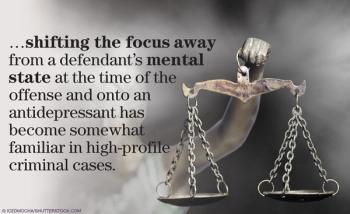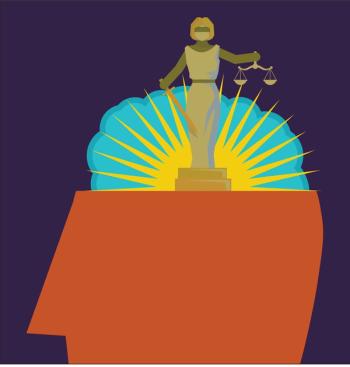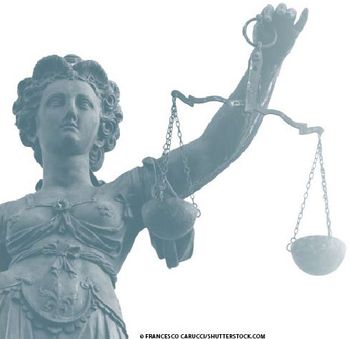
Neither time nor science has given pause to some attorneys who exploit the misunderstanding that surrounds the putative "criminogenic" effects of antidepressants.

Neither time nor science has given pause to some attorneys who exploit the misunderstanding that surrounds the putative "criminogenic" effects of antidepressants.

Health care and medical education must march ever onward-although recently there has been a growing uprising among the ranks of experienced physicians.

With a consistent and evolving presence in the US, forensic psychiatry has grown increasingly complex, with many specialty areas under its subspecialty umbrella.

In this article, the author covers some basic mapractice concepts and briefly address 2 key issues that frequently arise in the course of psychiatric malpractice litigation: documentation and the defendant psychiatrist’s deposition.

What is truth? In the end, it is not a forensic psychiatrist's place to judge. He or she is a cog in a bigger machine that is supposed to treat psychiatric illness.

American psychiatrists might be able to sympathize in the wake of recent mass tragedies leading to new, hastily conceived laws that directly impinge on psychiatric practice, confidentiality, and duty to protect third parties.

Mental rigidity can occur at any age, while wisdom and experience are hard-won--over time.

This tale involves a “clever” inmate. He enjoyed the respectable rung of bank robber, but found he had suddenly descended to approximately the level of a sex offender. The reason for his slippage was the inmate code, which demands allegiance to other inmates under virtually all circumstances. “Ratting out” a fellow inmate may cost one his life, or at the very least, result in a decidedly anxious, paranoid existence.

The term “pseudocommando” was first used to describe the type of mass murderer who plans his actions “after long deliberation,” and who kills indiscriminately in public during the daytime.

Here’s why it is painful to see a man cry: he's not supposed to. Emotions are arresting when society tells us they should not be expressed. In the case of a grown man crying, there are some thousands of years of cultural training laying down the prohibitive regulations.

The movie Bronson loosely follows the true story of the infamous "most violent prisoner" in the UK -- a man named Michael Peterson who later changed his name to Charles "Charlie" Bronson on the advice of his bare knuckle boxing promoter.

The next I heard of the Prince, my hopes that he had reshaped his consciousness in a more healthy direction were dashed. The Prince was in solitary confinement as punishment for another attempt to establish his empire.

He had returned to a familiar place, and his peers welcomed him back. The word "recidivist" comes from the French word "recidiver," meaning to "fall back." This was not the first time he had fallen back. He would surely tell you that his return was not by choice, but sometimes such things are hard to determine.

As I came closer, I could see Mr P more clearly. He was in his own world, wearing a Walkman with earphones on. I puzzled for a brief moment over this-was this to shut out attempts to talk him down? I could also see more clearly the rivulets of blood dripping from the incisions on his wrists to the concrete ground below.